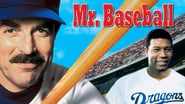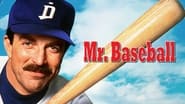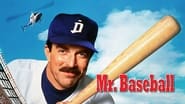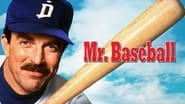gimlet_eye
I generally agree with the overall user ratings at this site, or at least find them plausible, but I find the 5.7 rating for "Mr. Baseball" (1992) even more ludicrous that the 7.8 accorded to it's imitator, Bill Murray's "Lost in Translation" (2002).I call the latter Bill Murray's movie, because like most of his movies it is at bottom little more than a situation comedy contrived to create funny scenes, with deadpan Murray as the straight man. The situation, of course - the essential culture clash that all gaijin cultures have with the Japanese - is inherently funny, so "Lost in Translation" is undeniably a funny movie, but it has virtually no plot, and the other characters, though played adequately by Scarlett Johanson, and Giovanni Ribisi, are little more than props for Mr. Murray. However, the movie (Dir: Sophia Coppola) is finely crafted and that counts for something. And I suppose that artful cinematography and other cinematic esoterica have impressed the critics, and that their views have bled off into those of the hoi polloi, and given them cover for their racist guffaws at the silly Japanese.Meanwhile, the standard sports movie plot of "Mr. Baseball" has provided its critics with an excuse to dismiss the movie because it annoyingly succeeds in actually bridging the cultural gap, without in any way sidelining the inherent humor in the situation - which doesn't, as it turns out, need any kind of exaggerated boost from Mr. Murray's brand of snide. "Mr. Baseball" actually provides insight into the Japanese culture, and thereby also into our own American culture, which IMO is the chief benefit of foreign travel, and it manages to stop just short, at the end, from the improbable contrived Hollywood ending. All in all, "Mr. Baseball" manages to artfully and plausibly traverse the tightrope of our expectations, and on my own subjective "rewatchable" scale, it beats "Lost in Translation" all hollow.
RoseNylan
This film is a different twist on the baseball comedy genre. Here, MLB player Tom Selleck is traded to a Japanese team. Predictably, there is culture clashes as the Japanese do things much different than the way its done in America. As always, there is also a love interest for Selleck in a Japanese commercial agent. Corny jokes and generally predictable situations make this film a forgettable one. The one bright spot here is the accurate portrayal of the Japanese culture.Unless you for some reason really love Tom Selleck and his style of humor or the game of baseball(which I do not), skip this film.
ray-280
Redo the Oscars from 1992, and this film might get nominated, or even win. It was SO good at capturing its era and dual cultures that it belongs in American and Japanese time capsules. If you wanted to know what living here or there was like back then, this film will show you. As an American, you'll feel like you tagged along for an extended Japanese vacation, and by the end of the film, you'll be a die-hard Dragons fan, as you accept the injection of Japanese tradition and culture into their baseball, much as we have done with our culture in our own game.Jack Elliot (Tom Selleck) is a slumping, aging Detroit Tigers' slugger who is traded to the Dragons, perennial runners-up to the dynastic Yomuri Giants, Japan's answer to the Yankees. The Giants are admired for their success, yet that success also has everyone wanting to surpass them, something which is rarely done. The Dragons' manager recruits Jack as the final piece of the pennant-winning puzzle, and we're left with what could have been Gung Ho on a baseball field, but instead was much more.The casting was outstanding: Selleck proved that with a good script and a character that suits him, he can carry a film as well as he did his television show, and the Japanese cast was equally good, down to Mr. Takagi from Die Hard back as the image-conscious owner. The other actors, including the one who plays the love interest (also the manager's daughter), strong and independent yet simultaneously a believer in Japanese traditions, beyond what was forced on her. She is a proper and supportive girlfriend for Jack. Even her father never tells her not to see him, almost sympathizing with Jack for what he endures from her, and a bit relieved he at least knows the man she has chosen to love.The baseball scenes are great, bolstered immensely by a pre-fame Dennis Haysbert as another American ex-patriate and Jack's western mentor. The usual fish-out-of-water elements are there, and you can almost feel yourself stumbling right along with Jack to fit into a country that doesn't speak our language, and doesn't practice our ways, yet copies everything we do, including our national pastime. one of the funnier scenes occurs when Jack, clutching a magazine, informs his manager that he has learned of the tradition in Japan where you can get drunk and tell off your boss, and it can't be used against you, and exercises that right very humorously. The plots and subplots are tied up neatly at the end, but not too neatly, and nothing concludes unrealistically.To call this a comedy is misguided: it's a pure comedy-drama, or even a drama with good humor. The plot is too deep to dismiss it the way it was by critics as an actor out of his league trying to carry a lightweight film. The situations were amusing, but in their place against a far more serious, profound, and precisely detailed backdrop that results in one of the best films I've ever seen. The baseball cinematography rivals that of For Love Of The Game, for realism.Some say the film is about baseball, or about Japan, but more than anything it seems to be about the workplace, and how people arrive at work from totally different origins, with different agendas, and somehow have to put their differences aside for the good of the company, or the team.A truly great film that never should have had to apologize for itself the way it did when it was in theaters.
gwilliams-10
This has always been a favorite movie of mine. I've owned a VHS copy, and a couple of months ago I found a DVD release which is also part of my video collection. I also happen to be a huge baseball fan, and as part of my off-season reading, I picked up a copy of Robert Whiting's excellent book "You Gotta Have WA", that profiles the ins and outs of Japanese baseball, and the challenges that foreign players have encountered playing in Japan. As I began to read yesterday, it made me think of this movie, because it appears the screenplay was based almost verbatim on this book. The parallels are uncanny. The Jack Elliot character closely resembles Bob Horner, an aging MLB slugger whose best days were behind him. Horner's teammate Leon Lee is also depicted in the character Max "Hammer" Dubois, a veteran in the Japanese league who has made his peace with the frustrations of the Japanese game, and helps keeps his teammate sane. The Elliot character goes through the same sequence of encounters as Horner, from big fanfare signing, early success that fuels an already ravenous sports media, and the ensuing slump that spurs frustration, alienation from teammates, fans and media, and the resulting disillusionment that prompts a desire to go back home to the US. The only difference is that the movie adds such Hollywood touches as a love interest and a happy ending. Speaking of love interests, I'm sure many viewers have come to this site (as I did) to look up the actress who played "Hiroko" (the beautiful Aya Takanashi), and what other work she has done. It only lists this movie. It turns out, based on an article I read, that the brief love scene she has with Tom Selleck (a foreigner) in this movie (mild by our standards - basically they kiss while he's in the bath and she's wearing a towel) caused such an outrage on the part of the Japanese public (males in particular) that she has never been offered another role of any kind, in Movies or television - essentially blackballed by the Japanese movie industry. It's a real shame, as she is(was) quite a talented actress in this movie. If you like this movie as much for the baseball elements and cultural differences as I did -- go find a copy of "You Gotta Have WA" by Robert Whiting. A good read and a great companion book to this movie.
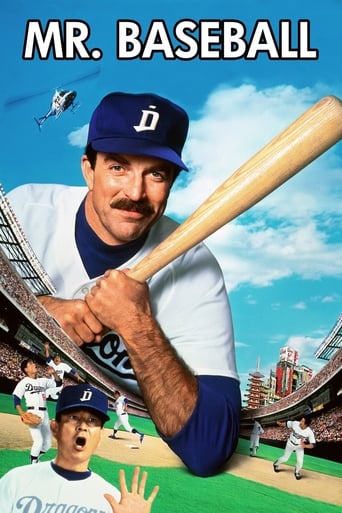
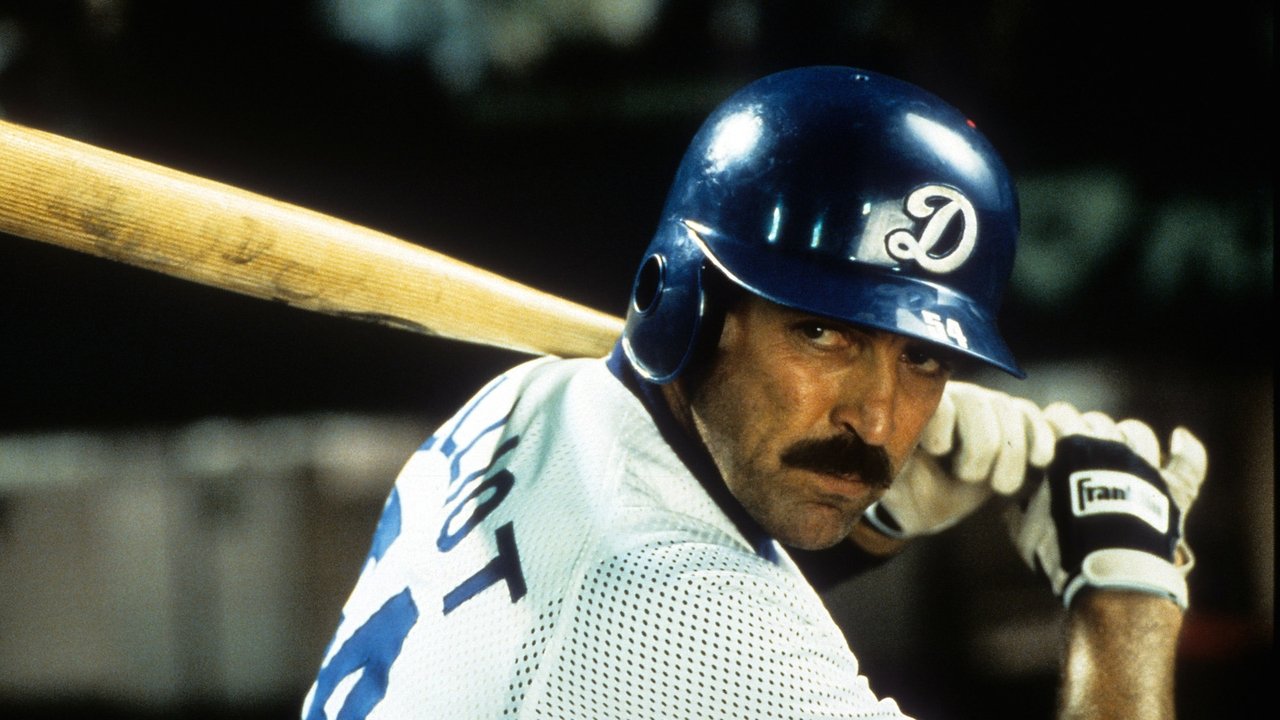

 AD
AD



